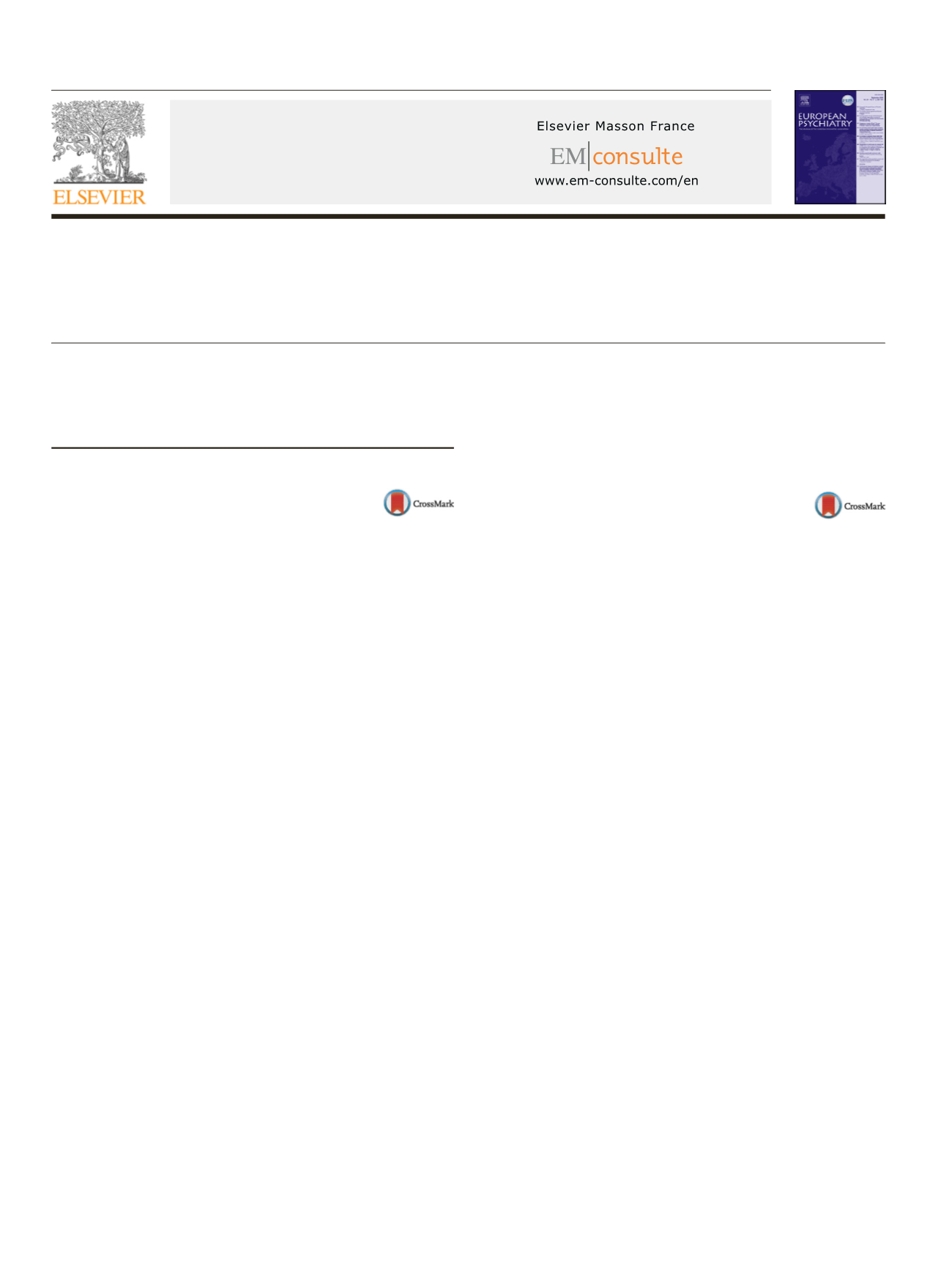
 European Psychiatry 41S (2017) S710–S771
European Psychiatry 41S (2017) S710–S771
Available online at
ScienceDirect
www.sciencedirect.com25th European Congress of Psychiatry
ePoster Viewing part 6
e-Poster Viewing: Personality and personality
disorders
EV0936
Personality traits and specialty choice
among Oman medical specialty board
residents
M. Al Alawi
1 ,∗
, H. Al Sinawi
1, S. Al Huseini
21
Sultan Qaboos University Hospital, Behavioral Medicine, Muscat,
Oman
2
Oman Medical Specialty Board, Psychiatry, Muscat, Oman
∗
Corresponding author.
Introduction
Understanding factors that determine the choice of
a specialty among junior doctors are crucial for career counsel-
ing and candidates selection. Most studies focused on working
hours, income and other lifestyle factors. However, few studies
have explored the role of personality traits of the doctors in influ-
encing specialty choice.
Aims
To examine the relation between personality traits and spe-
cialty choice among residents at Oman Medical Specialty Board
(OMSB).
Methodology
Residents from different specialties were invited to
participate in this study by completing Eysenck Personality Ques-
tionnaire – Revised (EPQ-R) and Behavioral Inhibition System (BIS)
& Behavioral Activation System (BAS) scale.
Results
A total of 255 residents participated in the study (
M
= 40%,
F
= 60%). Surgical residents scored significantly higher on the Psy-
choticism sub-scale (
P
-value, 0.002) and the Behavioral Activation
System (BAS) scale compared to nonsurgical residents (
P
-value,
0.05). On the other hand, medical residents scored higher in Behav-
ioral Inhibition System sub-scale suggesting a tendency towards
avoidance of anxiety-provoking situation (
P
= 0.023). Concerning
neuroticism trait, psychiatrists had the lowest score indicating
more emotional stability. Residents from diagnostic specialties
score the highest in BAS–Fun seeking with a difference reaching
the level of statistical significance.
Conclusion
The findings of this study suggest a possible cor-
relation between career choice and personality traits. Therefore,
adapting a well-constructed, efficient and standardized selection
approach is of great importance. A reasonable framework for con-
ceptualizing specialty choice would be recognizing one’s own
personality traits along with exploring social and technical factors
related to a particular specialty.
Disclosure of interest
The authors have not supplied their decla-
ration of competing interest.
http://dx.doi.org/10.1016/j.eurpsy.2017.01.1266EV0937
Portuguese validation of the
Psychological Entitlement Scale
A.I. Araújo
1 ,∗
, A.T. Pereira
2, C. Cabac¸ os
3, M.J. Brito
3,
L. Mendonc¸ a
3, A. Macedo
21
Faculty of Medicine, University of Coimbra, Department of
Psychological Medicine, Macieira de Cambra, Portugal
2
Department of Psychological Medicine, Faculty of Medicine,
University of Coimbra, Coimbra, Portugal
3
Faculty of Medicine, University of Coimbra, Faculty of Medicine,
University of Coimbra, Coimbra, Portugal
∗
Corresponding author.
Introduction
Psychological entitlement can be conceived as a dis-
position to believe that one deserves or is entitled to more than
others. This pervasive sense has a wide impact on social behaviour,
namely undesirable social outcomes. Given these theoretical impli-
cations on self-concept and interpersonal functioning, Campbell
and Bonacci developed a shorter questionnaire of the Psycholog-
ical Entitlement Scale (PES) to evaluate this construct by reducing
from the original version from 57 to 9 items.
Objective
To investigate the psychometric properties of Psycho-
logical Entitlement Portuguese version.
Methods
A community sample composed of 286 university stu-
dents (69.2% females; mean age = 21.09
±
2.133; range: 17–33)
answered the Portuguese preliminary versions of the PES, of the
Dirty Dozen and of the honesty-humility dimension from the
HEXACO-100.
Results
The PES Cronbach alpha was “very good” (
a
= 0.75). Fol-
lowing Kaiser and Cattel Scree Plot criteria, only one factor was
extracted (explained variance = 35.46%), meaning that the scale is
unidimensional. Pearson correlation coefficient of between PES
and narcissism (
r
= 0.36), psychopathy (
r
= 0.21) and Machiavelism
(
r
= 0.24) were positive, moderate and significant (
P
< 0.01). Pear-
son correlation between PES and honesty-humility was negative,
moderate and significant (
r
=
−
0.43
P
< 0.05).
Conclusions
The Portuguese version of PES present good internal
consistency and convergent-divergent validity. Because we con-
sider that psychological entitlement reflects a stable disposition,
it is our intent to analyze PES temporal stability within the ongo-
ing research project on the relationship between perfectionismand
0924-9338/


















